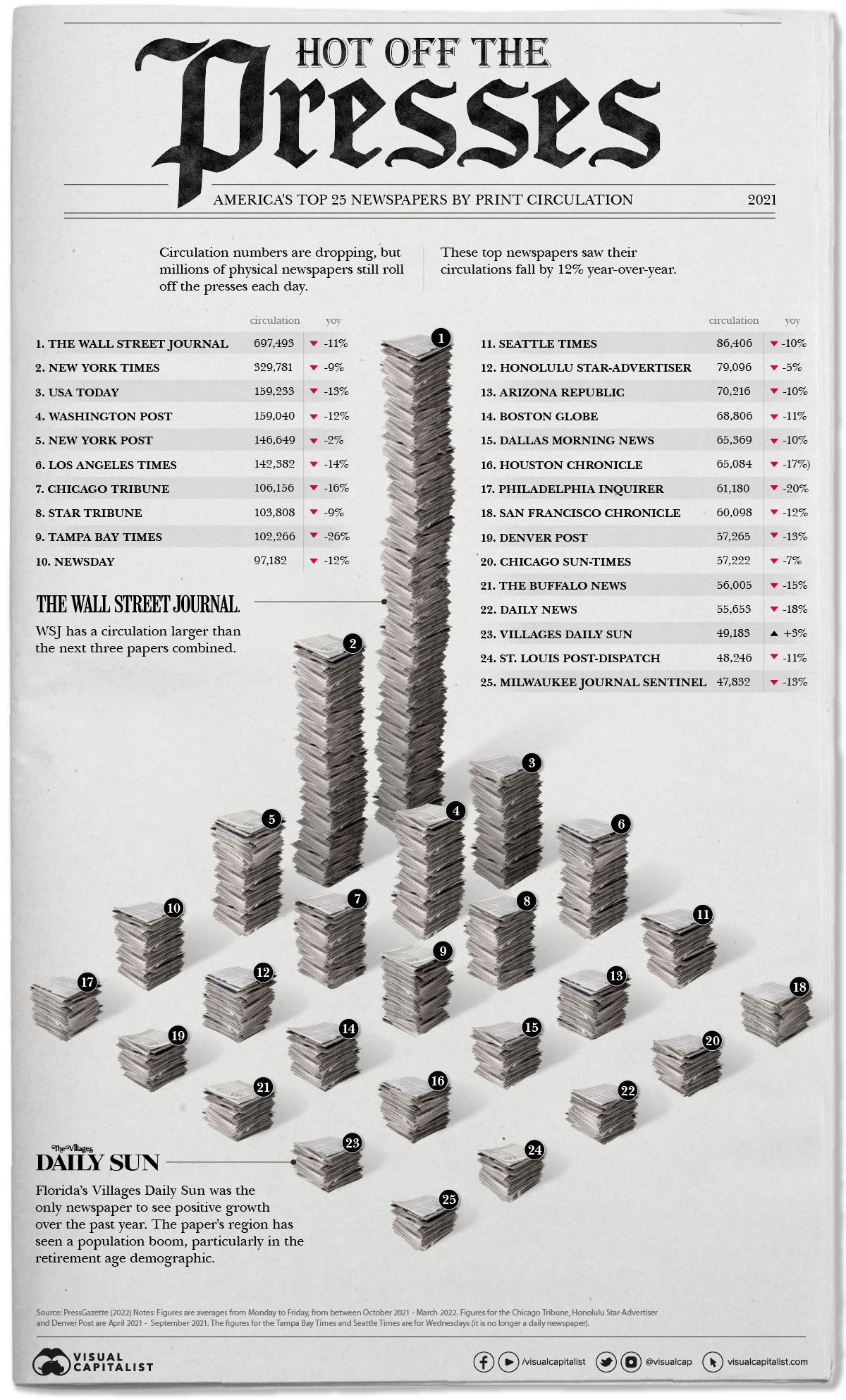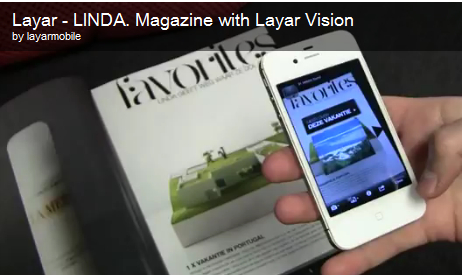To Seoul in May for WMEMC
I’m pleased to have been invited by the Scientific Committee of the World Media Economics and Management Conference to present my latest paper at WMEMC’s next biennial meeting this May in Seoul, South Korea.
I’m pleased to have been invited by the Scientific Committee of the World Media Economics and Management Conference to present my latest paper at WMEMC’s next biennial meeting this May in Seoul, South Korea.

A graphic illustration from VisualCapitalist.com shows the dire situation of U.S. daily newspapers.

Reality is that the world’s newspaper industry, indeed all of the Industrial Era’s legacy industries that are colloquially referred to as the Mass Media, have ultimately failed to adapt to the New Media environment, despite more than 25 years of endeavors, to…
I’ve spend much of the morning today watching a seminar in which eight daily newspapers from different European nations present their endeavors to generate subscriptions to their websites. I was perhaps the only one of the 1,200 people–virtually all from other daily newspapers, watching this online seminar not for its tips about how to generate online subscriptions but to assess how still myopic and misguided is the world’s newspaper industry. That industry, an integral product of the Industrial Era, botched its adaptation to the Information Era (an adaptation that nonetheless would have transformed that industry into something else). The error that botched its adaptation was that the industry’s ‘digital’ (i.e., ‘online’) pioneers (1995-2005) myopically misperceived computer-mediated technologies merely as means to delivery texts, still photos, and graphics, without purchasing, printing, and distributing paper editions. In other words, they saw online merely as a electronic distribution mechanism and websites as as non-paper versions of their traditionally printed editions.

Computer mediation means mediation, not simply electronic delivery. It means sorting and processing information on massive scales, which is what computerized technologies do best. They can sort, process, and deliver an individualized (i..e, individuated) supply of news to fit each individual consumer’s unique mix of needs, interests, and tastes. Computer-mediated technologies do this algorithmically. Computer-mediation is the hallmark of the dawning Informational Era. It makes no sense for legacy media industries not to embrace, adopt, and utilize these historically newfound capabilities. To use computer-media technologies merely as a means of electronic delivery is akin to using horses to pull an automobile along a paved road: a myopic misuse of capabilities.
Any technologies that can supply a consumer with the most precise mix of stories that match his own individual needs, interests, beliefs, and tastes, will triumph over technologies less precise. That is the reason why Google and other information search engines, why Facebook and other social media services, and why topical or ‘niche’ services that offer individuated feeds of music or other genres of information, have become so explosively successful during the past 20 years. Although they were not initial designed to provide consumers with individuated feeds of news, their computer-mediated algorithmic software can do so, as literally billions of consumers have discovered. This is why consumers now use such computer-mediated Individuated Media services as their predominant means by which they obtain news, entertainment, and other information, to the grave distress of legacy media industries that failed to adopt such technologies. That is how daily newspapers lost the future.

The financial disaster unforlding for the daily ewspaper industries due to the coronavirus pandemic is a late-stage event in an even greater struggle that has been underway in the media environment for more than 25 years. As the Industrial Era wanes and the Informational Era dawns, the predominant means by which most people under age 40 in developed countries obtain news, entertainment, and other information is now via Individuated Media rather than Mass. Click the headline to read this essay to find out what Individuated Media are and why they are supersededing Mass Media.

In 1993, after two decades working for newspapers’ print editions and for two of the world’s major international news services, I switched the focus of my career to working full-time on journalism’s transition from print and terrestrial or cable and satellite broadcasting…

We’re generally not a company that emphasizes a continuing role for paper (as opposed to epaper) in the future, but we are enthusiastic about some of the Augmented Reality mobile phone applications being developed by the Dutch company Layar for use with…
Despite its complication, a game of chess is basically a three-act play. So too is our current, transitional era for media companies.
Why the major reason for American daily newspapers’ demise is their inertia has violated the basics of the Principle of Supply & Demand.
American daily newspapers are dying for only two reasons that have nothing to do with advertiser flight or with lacks of sufficient multimedia, convergence, interactivity, Web 2.0, or ‘citizen journalism. Learn the two real reasons.
As the news industry dies, it’s undergoing Dr. Elisabeth Kubler-Ross’ famous Five Stages of Grief. And the past two years have seen significant changes in its passage through those stages
The text of my speech last week to the World Association of Newspapers’ Advertising Conference in Paris.
Cocktails during Cinco de Mayo at the offices of Critical Mention above New York City’s 57th Street canyon I haven’t been posting much because I’ve been traveling most of the past few months — half that time to develop the video news…
The annual IFRA/WAN/FIPP Beyond the Printed Word online publishing conference was held in Prague yesterday and today. A summary of the presentations is available from WAN and there is an interesting conference moblog. Here from the conference (my thanks to the IFRA…
I’ve more thoughts about the accelerating declines in circulations of major U.S. newspaper: Many newspaper executives are blaming the new Do-Not-Call anti-telemarketing lists for a large portion of their newspapers’ recent circulation declines. That is disingenous. In reality, the blame should be…